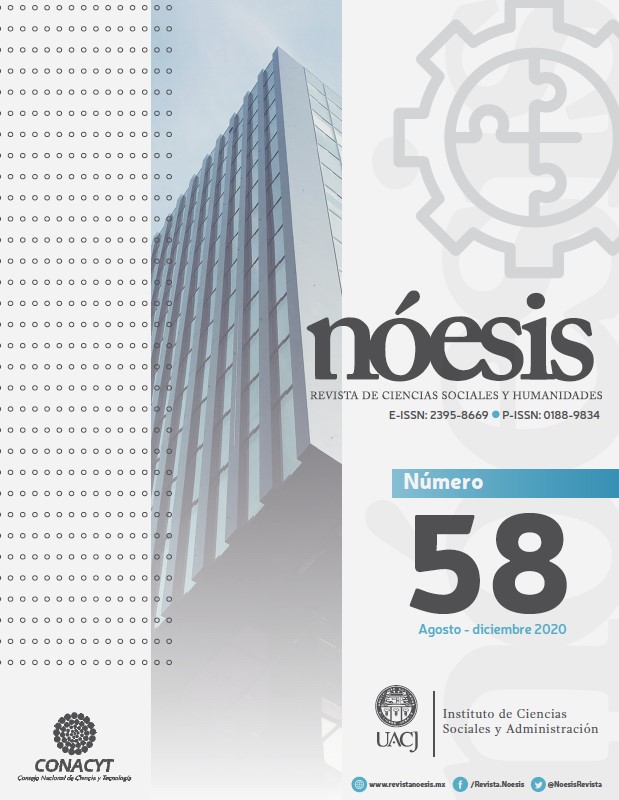Spaces of violence, spaces of dwelling
Main Article Content
Abstract
In the present article we reconsider space as a fundamental category to assess both “the common” and the actual violence exerted against it. This approach stems historically from the modern point of view in 20th century’s language philosophy. Nevertheless, it serves as a point of departure for a general consideration over structure and space natures. Such an enterprise to vindicate the role of space in philosophy, so called, in order to reach the same dignification as time. We first address its cognitive dimension, then its linguistical structure and finally arrive to a proper “spatial reading”. We advance in the thesis that a human being requires a common space, imagined through a topology. At the final remarks, we offer some cues to think contemporary common space to shed light on different sorts of violence directed against it.
Downloads
Article Details

This work is licensed under a Creative Commons Attribution-NonCommercial-ShareAlike 4.0 International License.
References
Aguirre, Arturo y Moisés Romero. 2015. Violencia expuesta. Consideraciones filosóficas sobre el acontecimiento de la fosa común. Espacio I+D Innovación más Desarrollo, 4 (9): 83-107.
Anders, Günther. 2011. La obsolescencia del hombre. Vol I. Sobre el alma en la época de la segunda revolución industrial. Valencia: Pre-Textos.
Derrida, Jacques. 1998. Espectros de Marx. El estado de la deuda, el trabajo del duelo y la nueva internacional. Madrid: Trotta
Fernández, Carlos. 2009. Los diez mandamientos y el siglo XXI. http://www.rebelion.org/noticia.php?id=79287 (1 de marzo de 2019).
Foucault, Michel. 1968. Las palabras y las cosas. Una arqueología de las ciencias humanas. Buenos Aires: Siglo XXI
Foucault, Michel. 1994. Le sujet et le pouvoir. En: Dits et écrits 1954-1988, tomo 4: 1980-1988. París: Gallimard: 222-243.
Han, Byung-Chul. 2016. Topología de la violencia. Barcelona: Herder.
Hegel, Georg. 1956. Ciencia de la Lógica. Buenos Aires: Hachette.
Hegel, Friedrich. 2007. ¿Quién piensa abstractamente? Introducción, traducción y notas de Gustavo Macedo y María del Rosario Acosta. Ideas y Valores, 133: 151-156.
Hegel, Friedrich. 1986. Werke in 20 Bänden mit Registerband: 5: Wissenschaft der Logik I. Erster Teil. Die objektive Logik. Erstes Buch. Frankfurt del Meno: Suhrkamp.
Heidegger, Martin. 1997. Construir, Habitar, Pensar. Córdoba: Alción.
Jameson, Fredric. 1998. Cognitive Mapping. En Marxism and the Interpretation of Culture, editado por Cary Nelson y Lawrence Cary. Urbana y Chicago: University of Illinois Press, 347-357.
Platón. 2008. Diálogos, Tomo VI (Filebo, Timeo, Critias). Madrid: Gredos.
McCulloch, Warren. 1945. A heterarchy of values determined by the topology of nervous nets. The bulletin of mathematical biophysics, 2 (7): 89–93.
Romero, Arturo. 2017. Com-plexus: espacio y comunidad. Graffylia, 25 (15): 5-30.
Romero, Arturo. 2019. Die Gegenwart anders denken: Zeit, Raum und Logik nach dem Ende der Philosophie. Berlín: Metzler.

